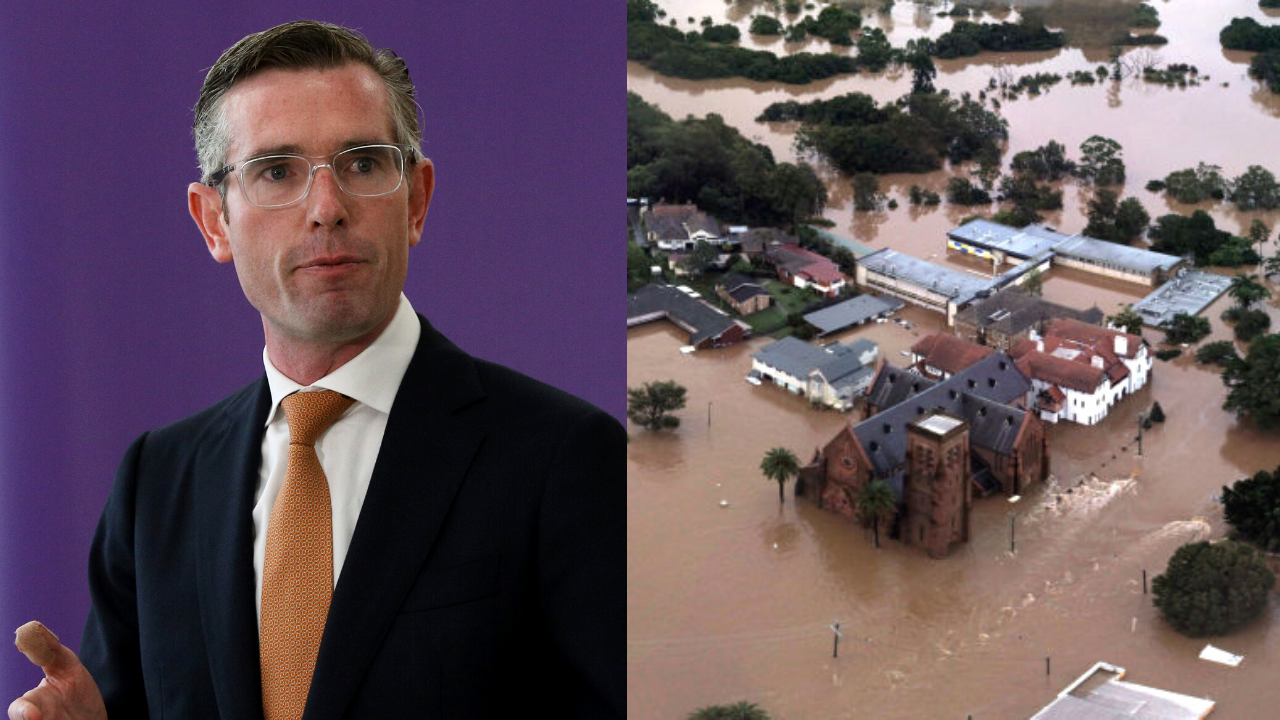
On Tuesday NSW Premier Dominic Perrottet described the floods occurring across New South Wales as a “one-in-1000-year event”. However, since Perrottet made that claim, several meteorologists attempted to set the record straight. We’ve sorted through all the hectic scientific lingo and come up with this explainer on why framing the NSW floods in such a way could be misleading.
There are various ways meteorologists assess the risk of a damaging weather event occurring. Generally speaking, the higher the projected maximum flood level, the lower the risk. For example, a 20-metre high flood is far less likely than half a metre of rainwater.
It is presumed that when Perrottet was speaking on Tuesday, he was using lingo from the Lismore Floodplain Risk Management Plan 2014. The plan is a 24-page document outlining the northeastern NSW city’s system for negotiating high waters.
In the document, a 13.4m flood is expected to occur at a rate of 1 in every 500 years. A 16m flood is expected to happen every 100,000 years as per 7News.
How long till our next 1 in 1000 year flood?
— Jennifer Crawford (@OurNewHomecoach) March 2, 2022
But hang on a second — that’s a huge jump. Every 500 years to every 100,000 years?
How are we supposed to measure the risk of everything between those two numbers?
It becomes all the more confusing when we consider that the actual height of floodwaters in Lismore on Monday was a staggering 14.4m.
We can only assume that Perrottet got the “one-in-1000-year” number by starting with the “1 in every 500 year” chance for a 13.4m flood before adding another 500 years to account for the extra metre of flooding.
As scientists have noted, this is not how risk assessment works. Especially when you consider that risk assessments are subject to changes in the earth’s climate.
Unfortunately the flooding in NSW is not a 1-in-1000 year event. It’s our new reality. Thanks to climate change, ignored by so many for so long (and still ignored by too many). Bureau of Meteorology shoots down NSW Premier ‘one-in-1000-year’ flood claim https://t.co/EpPUzIOnd9
— Prof. Nick Talley (@Prof_NickTalley) March 3, 2022
Climate scientist at the University of Melbourne Dr Andrew King spoke to Guardian Australia about the issue.
“People don’t understand that it doesn’t mean an event happens every 1,000 years, and in a changing climate the probability of these events will change as well.”
He said the “one-in-1000-year” number was “definitely a misleading statistic”.
Dr Tom Matlock a risk scientist with a PhD in Environmental Science also noted that Perrottet’s number “implies we would be waiting another 1,000 years before we see another flood of this magnitude again” as per Guardian Australia.
“The fact we’ve had a one-in-1,000-year flood a year after we’re supposed to have had a one-in-100-year flood basically refutes that straight away,” Matlock said in reference to last year’s floods that saw several north-west Sydney towns evacuated.
During Wednesday’s episode of Sunrise, senior meteorologist at the Bureau of Meteorology Sarah Scully was asked how she thought Perrottet came to the “one-in-1,000-year” number.
“He didn’t get it from us,” Ms Scully said.
The floods are expected to cause headaches for Aussies living along Australia’s East Coast for weeks to come.
If you want to shake off the digital despair and rally around our friends in need, here’s our list of all the ways you can help flood victims.
The post Scientists Have Called Out Dominic Perrottet For Labelling The Floods A ‘1-In-A-1000’ Year Event appeared first on Pedestrian TV.







